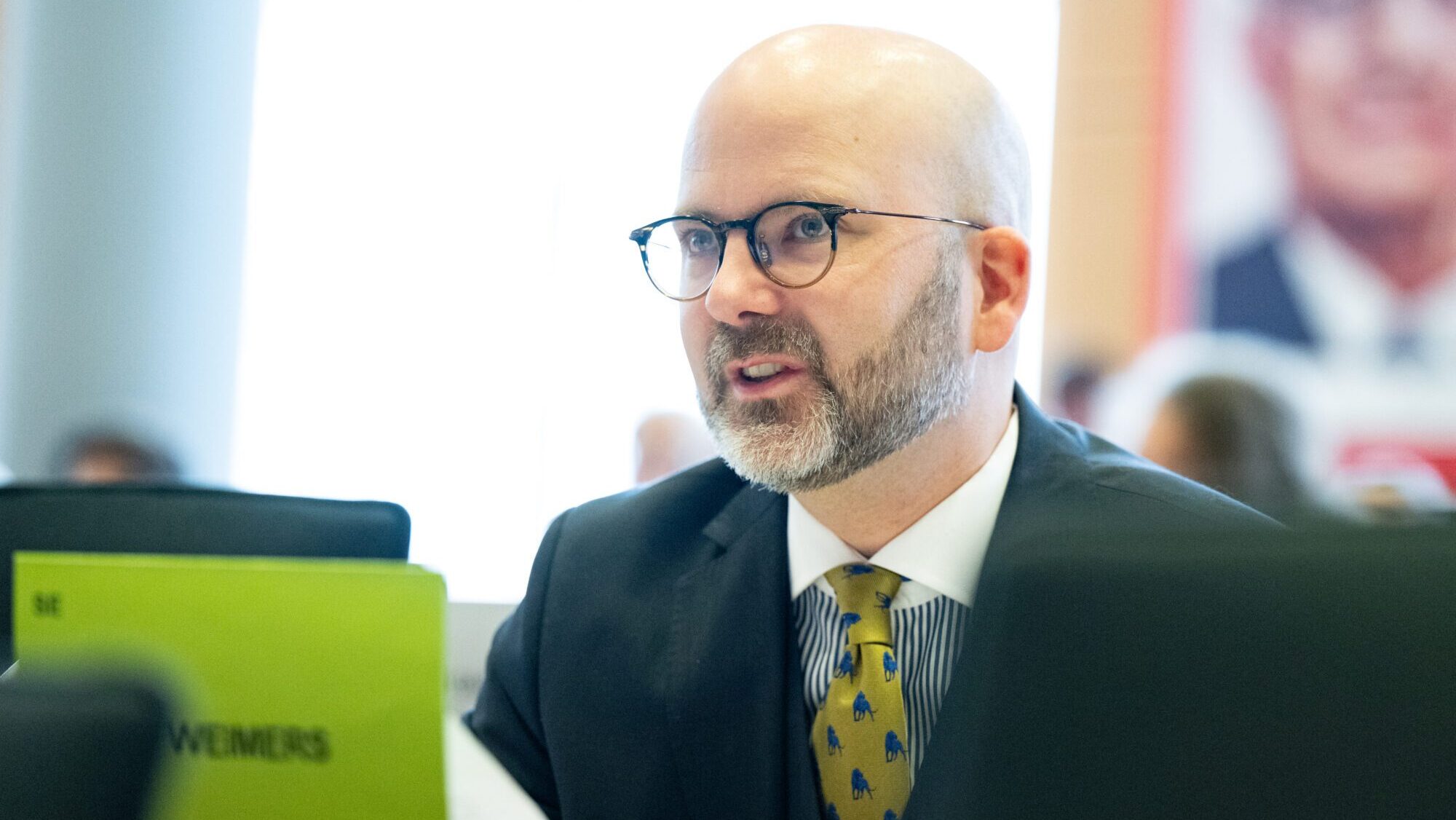
Conservative MEP Charlie Weimers, shortly after being interrupted while voicing the ECR’s opposition.
Photo: Denis LOMME ©European Union 2023 – Source : EP
MEPs in the European Parliament’s civil liberties committee voted to adopt a proposal to reform the rules of the Schengen Area on Wednesday, September 20th, in order to ensure internal border controls are reinstituted by member states “only as a last resort,” drawing criticism from conservative MEPs.
The proposal, aimed to ensure that free movement is respected within the Schengen Area by limiting the capabilities of member states to control their own borders, was adopted by 39 votes in favor, 13 against, and 12 abstentions.
All the leftist parties supported the proposal, and only the two conservative groups, ECR and ID, voted against it, while four members of the center-right EPP voted in favor and the remaining 11 abstained.
According to the Parliament’s press release, the need to reform the Schengen rules was triggered by “increasingly permanent border controls” within the area that member states began to first introduce during the COVID crisis and, later, to control the growing influx of illegal migration, as Germany and France did recently.
If the proposal is adopted at the plenary and Council level as well, member states will only be able to reintroduce “justified and time-limited” border controls. The rules would halve the period a member state can reintroduce border controls on its own from six months to three, and any longer periods would only be approved by Brussels when certain criteria are met.
Specifically, the Council will be able to authorize a member state to tighten its border control only in response to “identified and immediate” threats, such as terrorism, for a maximum of 18 months. In case of a “particularly serious threat affecting the majority of countries simultaneously,” the Commission could allow internal border controls for up to two years.
Furthermore, the new rules would promote alternatives to border controls whenever possible, which primarily includes strengthened police cooperation in border regions. However, when illegal migrants are apprehended by joint patrols within the Schengen borders, they may only be returned to the member state they came from if there’s evidence of their route and if that member state has also participated in the respective patrol.
According to the conservative ECR’s official position during the negotiations (seen by The European Conservative), the party decided to reject the proposal because the file’s socialist rapporteur “has chosen to ignore realities,” such as the weaponization of migration by third countries, the persistence of secondary movements, and the exploitation of the Schengen agreement by cross border criminal organization.
After the vote passed in the committee, the ECR’s shadow rapporteur on the file, Swedish Democrat MEP Charlie Weimers immediately submitted a minority position on behalf of his party, to be attached to the adopted text for consideration during interinstitutional negotiations.
Among others, the document argues that the proposal “undermines the sovereignty of member states to control who enters their territory” by requiring burdensome justifications for border controls and limiting the member state’s ability to deport illegally arrived migrants and even to properly monitor their own borders. Weimers stressed:
The functioning of the Schengen agreement is contingent upon mutual trust between member states. Free movement can only be restored when the external border is secured and a zero-tolerance policy towards all forms of illegal entry is implemented.
While reading the minority position, however, the conservative MEP was interrupted by loud booing and shouting from the left side of the chamber, forcing the chair to intervene by asking them to stay silent.
“If the liberals could respect their colleagues that’d be very nice,” Weimers turned to them before resuming his speech. “This is democracy, you know. Even the minority position is to be heard.”
This is not the first time that leftist MEPs have been disrespectful of their conservative colleagues—in fact, such incidents are almost commonplace in the European Parliament.
What made this interruption more curious—as one of the ECR’s parliamentary assistants pointed out to The European Conservative after the event—was that almost none of it could be heard or seen on the EP’s live broadcast. “The shouting is usually kept in. This was highly edited,” he told us.
